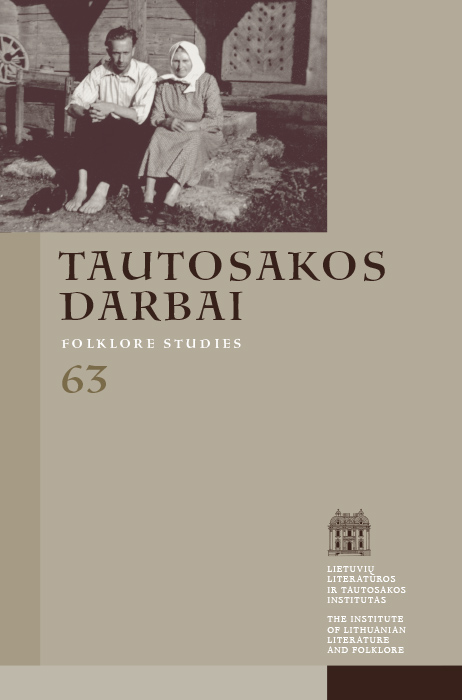Antisovietinio partizaninio karo pasakojimas: vienos šeimos atvejis
Santrauka
Remiantis Aukštaitijos partizanų Antano ir Zofijos Žilių istorija, rekonstruojamas šeimoje gyvuojantis partizaninio karo pasakojimas. Straipsnyje vadovaujamasi nuostata, kad pasakojimas ne tik prisideda prie individo tapatybės konstravimo, bet ir atskleidžia jo asmenines patirtis, vertybines nuostatas ir savitą praeities sampratą, todėl yra svarbus, dar menkai įsisąmonintas ir tyrinėtas partizaninio karo ir jo dalyvių pažinimo šaltinis. 2019–2020 m. užfiksuoti trijų kartų Žilių šeimos narių pasakojimai atskleidžia pasakojimo šeimoje formavimosi aplinkybes, esminius turinio elementus ir kaitą, perdavimo iš kartos į kartą procesus. Ginkluotame pasipriešinime dalyvavusių Žilių šeimos istorija pasirinkta kaip pavyzdys šeimų, susikūrusių dar iki laisvės kovų pradžios.
Atsisiuntimai
Skaitomiausi šio autoriaus(ų) straipsniai
- Greta Paskočiumaitė, Apie nepamirštamą partizaną ir primirštą laisvės kainą , Tautosakos darbai: T 68 (2024): Tautosakos darbai
- Greta Paskočiumaitė, Prisitaikę, bet nepamiršę: partizanų vaikų pasakojimai apie (ne)prisitaikymą prie sovietinės okupacijos , Tautosakos darbai: T 69 (2025): Tautosakos darbai
- Greta Paskočiumaitė, Austė Nakienė, Bronė Stundžienė, Jurga Sadauskienė, Kronika , Tautosakos darbai: T 62 (2021)
- Greta Paskočiumaitė, Lietuvos antisovietinio partizaninio karo istorinė atmintis trečiosios kartos pasakojimuose , Tautosakos darbai: T 62 (2021)
